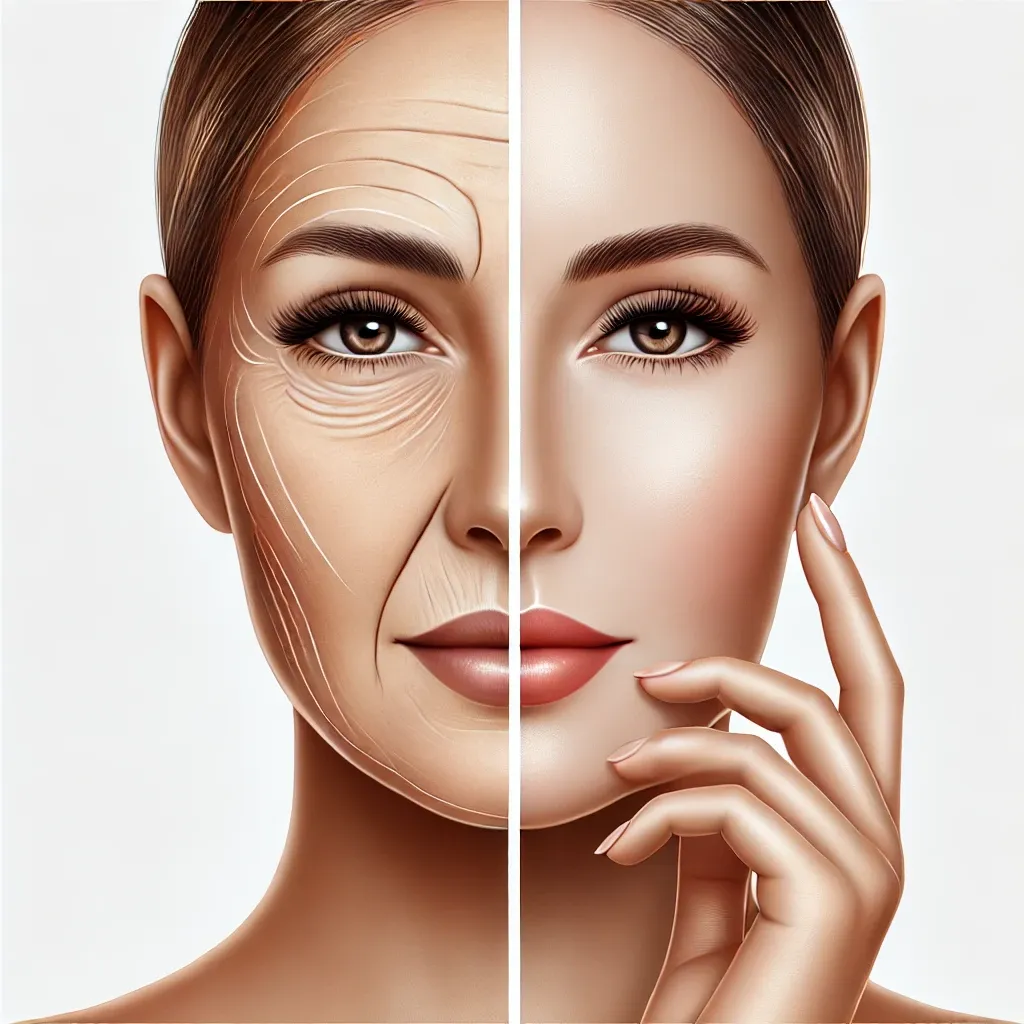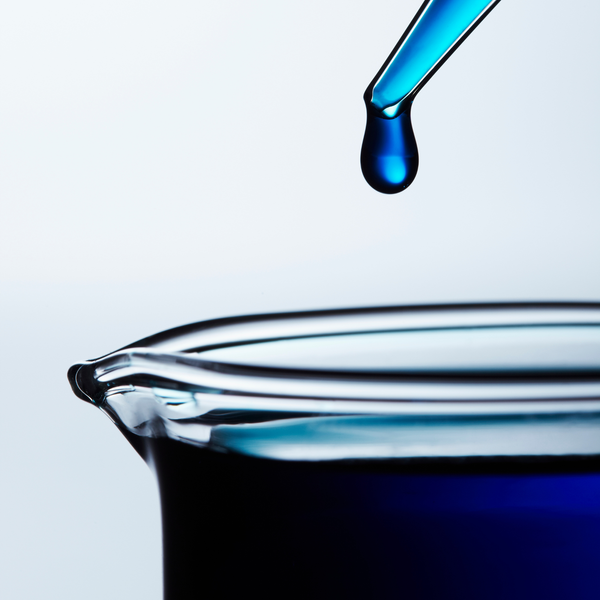My Joints Hurt, My Skin’s a Mess, and I’m Always Exhausted—Could It Be Leaky Gut?

Mirror, Mirror, What’s Happened to My Skin?
Have you ever caught your reflection and thought, When did my skin start looking so tired, inflamed, or just... off? Maybe those fine lines are showing up faster than you expected, or your complexion seems dull no matter how many products you pile on. Here’s the kicker: your gut health might be the culprit.
Leaky gut isn’t just about bloating or gas (although, let’s be real, those are hard to ignore). It’s a sneaky condition that lets toxins and inflammation wreak havoc on your body—and yes, that includes your skin. From wrinkles to breakouts, a compromised gut barrier can show up on your face in ways that no fancy cream can fix.
The good news? Healing your gut doesn’t require a magic wand—just some intentional changes to your diet and lifestyle. Radiant skin, more energy, and a healthier you are all within reach. Let’s dive in.
What Is Leaky Gut and Why Does It Matter?
Your gut isn’t just a digestive system—it’s a gatekeeper for your overall health. The gut lining is made up of tightly packed cells that decide what gets absorbed into your bloodstream and what gets sent out as waste. Think of it as a bouncer at an exclusive club, keeping the wrong stuff out.
When you have leaky gut syndrome, this bouncer gets lazy. The tight junctions between the cells loosen, allowing harmful substances like toxins, bacteria, and undigested food particles to sneak into your bloodstream. This sets off an immune response, triggering inflammation that can affect every part of your body.
Symptoms of leaky gut include:
- Digestive issues: Bloating, diarrhea, constipation, or gas.
- Skin conditions: Eczema, psoriasis, rosacea, and premature aging.
- Autoimmune diseases: Rheumatoid arthritis, lupus, and celiac disease (Fasano, 2012).
- Brain fog, anxiety, and depression: Gut health is directly tied to mental clarity and emotional balance. (Johns Hopkins Medicine).
- Fatigue and joint pain: Chronic inflammation depletes your energy and impacts joint health.
Leaky gut doesn’t just cause discomfort—it can disrupt your overall wellness. But with the right approach, you can begin to repair the damage.
The 4 Core Principles of Healing Leaky Gut
Healing leaky gut requires a multi-step approach that’s as simple as following the 4 R’s: Remove, Replace, Reinoculate, and Repair.
1. Remove
The first step is to eliminate the triggers damaging your gut lining. Processed foods, refined sugar, alcohol, and common additives like emulsifiers and artificial sweeteners are major culprits (Chassaing et al., 2015).
Look at food labels and avoid:
- High-fructose corn syrup
- Hydrogenated oils
- Artificial flavors
- Carrageenan
Toxins aren’t limited to food. Environmental irritants like synthetic air fresheners, perfumes, and pesticides can also contribute to inflammation. Swap them out for non-toxic, natural alternatives whenever possible.
2. Replace
Once you’ve removed the harmful stuff, it’s time to support your digestive system by replacing what’s missing. Digestive enzymes can help your body break down food more effectively, while supplements like apple cider vinegar can boost stomach acid for better digestion.
3. Reinoculate
Next, focus on restoring balance to your gut microbiome by introducing probiotics and prebiotics.
Probiotic strains to look for:
- Lactobacillus rhamnosus: Reduces inflammation and supports gut barrier function.
- Bifidobacterium bifidum: Improves digestion and boosts immunity.
- Saccharomyces boulardii: A beneficial yeast that helps combat harmful bacteria.
Prebiotics:
Prebiotics are fibers that feed the good bacteria in your gut. Include foods like asparagus, onions, garlic, and bananas to help these probiotics thrive (Slavin, 2013).
4. Repair
Healing your gut lining takes time, but the right nutrients, lifestyle habits, and even a little skincare support can speed up the process.
Nutrients to Heal the Gut
- L-glutamine: This amino acid is like a repair kit for your gut, strengthening the intestinal lining and reducing inflammation (PMCID: PMC5454963 PMID: 28498331)
- Collagen: Not only does collagen help rebuild gut tissue, but it also supports skin elasticity, joint health, and hair strength. High-quality options like Kettle & Fire bone broth are cooked for days to extract maximum nutrients.
- Zinc carnosine: Known for its anti-inflammatory properties, zinc helps soothe and restore the gut lining .
How Healing Your Gut Supports Radiant Skin
Your gut and skin are deeply connected. When your gut barrier is compromised, chronic inflammation can break down collagen and elastin, leading to wrinkles, dullness, and redness. Poor gut health also interferes with nutrient absorption, depriving your skin of essential vitamins like C, E, and zinc.
By healing your gut, you’re giving your skin the nutrients and balance it needs to thrive.
Topical Products to Support Skin Health
While addressing your gut is the foundation for long-term results, topical products can enhance your skin’s appearance during the healing process. Look for:
- Hyaluronic Acid: To lock in moisture and plump up fine lines.
- Vitamin C: To brighten your complexion and stimulate collagen production.
- Retinol: To encourage cell turnover and reduce the appearance of wrinkles (start slow to avoid irritation).
- Niacinamide: To calm redness, reduce inflammation, and strengthen the skin barrier.
These products won’t replace gut healing, but they can give your skin a boost while you work on the root cause.
Practical Lifestyle Changes to Support Gut Health
1. Focus on Gut-Friendly Foods
Fermented foods like sauerkraut, kimchi, and kefir are rich in probiotics, but avoid store-bought pickles unless they’re labeled as fermented. Pair these with fiber-rich foods like artichokes, avocados, and berries to nourish your microbiome.
Here’s the updated Prioritize Sleep section with grounding sheets added:
2. Prioritize Sleep
Sleep is when your body repairs itself, and that includes your gut. Poor sleep can disrupt your gut microbiome and slow down healing, so creating a solid bedtime routine is essential.
Tips for Better Sleep
- Limit electronics: Avoid screens when the sun goes down. Blue light disrupts your body’s natural production of melatonin, the sleep hormone.
- Create the right environment: Keep your bedroom cool, dark, and quiet, and remove Wi-Fi devices to reduce electromagnetic interference.
- Cut the caffeine: Avoid coffee, tea, or other stimulants at least 8 hours before bed.
- Use grounding sheets: These are specially designed bed sheets that connect to the Earth’s natural energy, reducing stress and improving sleep quality by neutralizing excess electromagnetic fields.
Supplements to Support Sleep
Sometimes, your body needs a little extra help to get the rest it needs. Consider these:
- Melatonin: A natural hormone that regulates your sleep-wake cycle. A small dose 30 minutes before bedtime can help you fall asleep faster and stay asleep longer.
- Magnesium: This mineral supports relaxation by calming your nervous system. Magnesium glycinate is especially helpful for sleep and gut health.
- L-theanine: For those with COMT gene mutations, this amino acid can help balance neurotransmitters and reduce nighttime anxiety (Nutt et al., 2008).
By prioritizing quality sleep and incorporating tools like grounding sheets, you’re giving your gut—and your entire body—the chance to repair and recharge.
Here’s an expanded section on Environmental Toxins with a detailed list of common toxins and practical ways to reduce exposure:
Here’s a more concise version of the Environmental Toxins section:
3. Limit Environmental Toxins
Everyday toxins in your environment can disrupt your gut, immune system, and overall health. Reducing exposure to these harmful substances is a crucial step in healing your gut.
Common Environmental Toxins and How to Avoid Them
1. Airborne Toxins
- Synthetic Air Fresheners and Candles: Release harmful VOCs.
- Solution: Use essential oil diffusers or beeswax candles.
- Dust: Contains chemicals like pesticides and flame retardants.
- Solution: Clean with a HEPA vacuum and damp cloth.
2. Cleaning Products
- Harsh Chemicals: Ammonia, bleach, and phthalates can harm health.
- Solution: Choose non-toxic, plant-based cleaners or DIY with vinegar.
3. Plastics and Food Storage
- BPA and Phthalates: Leach from plastic containers.
- Solution: Switch to glass or stainless steel.
4. Personal Care Products
- Parabens and Fragrances: Disrupt hormones and cause inflammation.
- Solution: Use paraben-free and fragrance-free products.
5. Water Contaminants
- Chlorine, Fluoride, and Metals: Common in tap water.
- Solution: Use a high-quality water filter.
6. Pesticides in Food
- Glyphosate: Found on non-organic produce.
- Solution: Buy organic or use a produce wash.
7. Non-Stick Cookware
- Toxic Coatings: Release harmful fumes.
- Solution: Use ceramic, cast iron, or stainless steel.
Why Reducing Toxins Matters
Your body is already working hard to process internal toxins from digestion and metabolism. External toxins add to the load, making it harder for your gut and immune system to function properly. By minimizing your exposure, you’re giving your body the bandwidth it needs to focus on repair and healing.
Start small—swap out one product at a time—and watch how these changes positively impact your health.
4. Stay Hydrated
Hydration is critical for flushing toxins and supporting digestion. Aim for at least half your body weight in ounces of filtered water daily.
5. Get Moving
Moderate exercise improves circulation, which delivers nutrients to the gut lining. Avoid overusing NSAIDs, as they can harm gut integrity (Cryer & Feldman, 1998).
Time to Stop Reading and Start Healing
Your gut holds the key to vibrant health, radiant skin, and boundless energy. But healing it doesn’t have to be complicated or overwhelming. That’s why I created the Anti-Inflammatory Gut Reset Plan—your step-by-step guide to reclaiming your health.
Packed with easy-to-follow recipes, shopping lists, and actionable strategies, this plan takes the guesswork out of gut healing so you can focus on feeling your best. It’s not just about reducing inflammation; it’s about transforming your energy, your skin, and your life.
Are you ready to take the first step? Your gut—and your future self—will thank you. Let’s get started today.

In health,
Jamie Shahan MSN, CRNA, RN
Empowering Holistic Health
🌐 Connect with me on Social Media:
This article contains affiliate links and I may make a little cash along the way. I'd be stupid not to add them! If I am educating you about making changes then I may as well recommend items for you to try. These suggestions will get you looking in the right direction.



